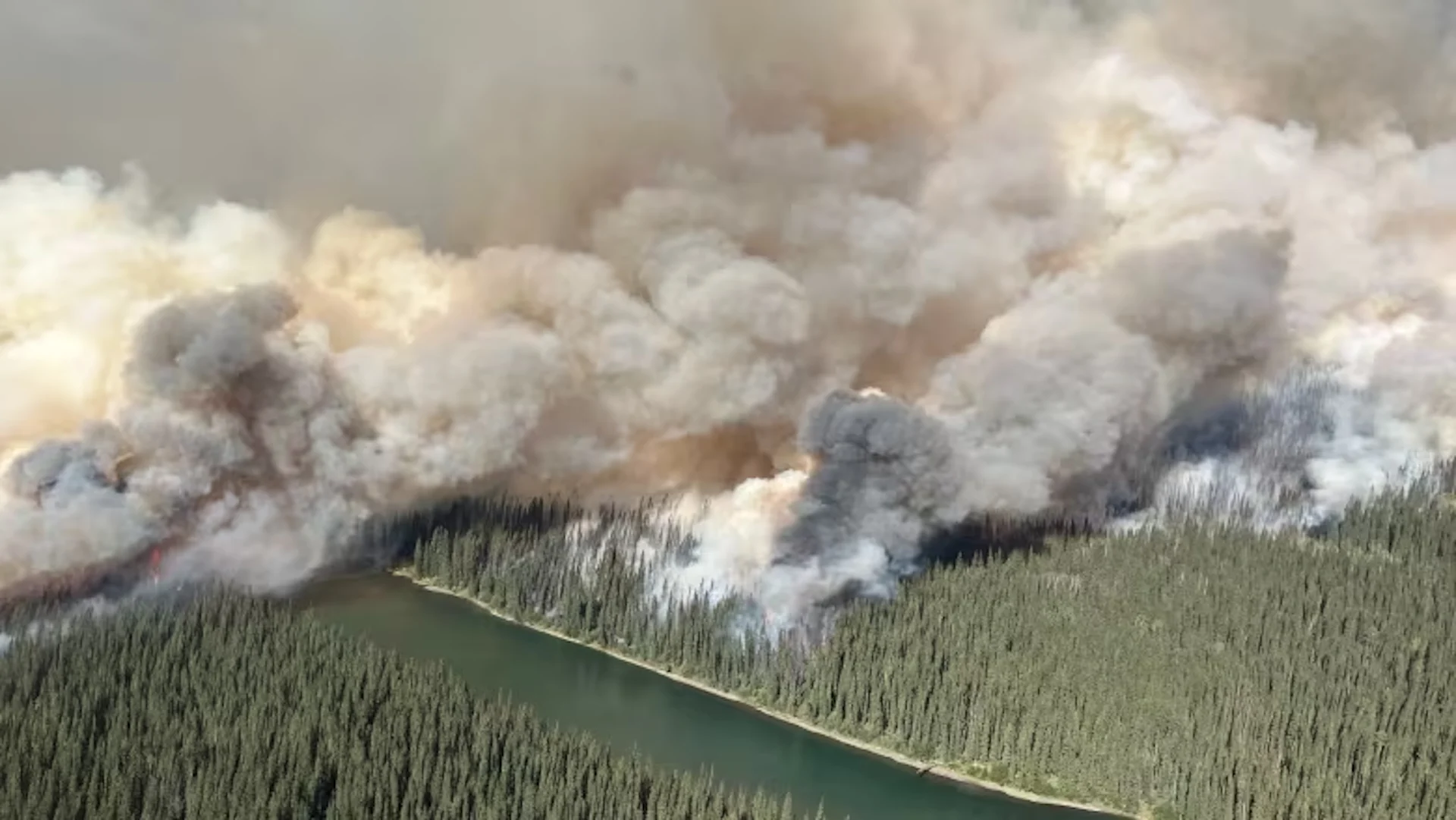
Wildfires close several northern B.C. highways, Interior evac. orders downgraded
Visit The Weather Network's wildfire hub to keep up with the latest on the unprecedented wildfire season across Canada.
B.C. wildfire crews say they're watching high winds with the potential to fan flames in the province's north, while some evacuation orders were downgraded in the province's Interior.
Officials have warned that most new fire starts are human-caused amid cooler conditions late in the wildfire season, and urged British Columbians to be vigilant and respect fire bans over the Labour Day long weekend.
While cooler conditions have aided firefighters in the southern half of the province, high winds in the north have led many fires to become more aggressive.
RELATED: B.C. extending state of emergency amid ongoing wildfire battle
That includes the Little Blue River wildfire 30 kilometres south of the Yukon border in the northwest, which jumped Highway 37 on Friday. The highway is closed for a 70-kilometre stretch with no detour available.
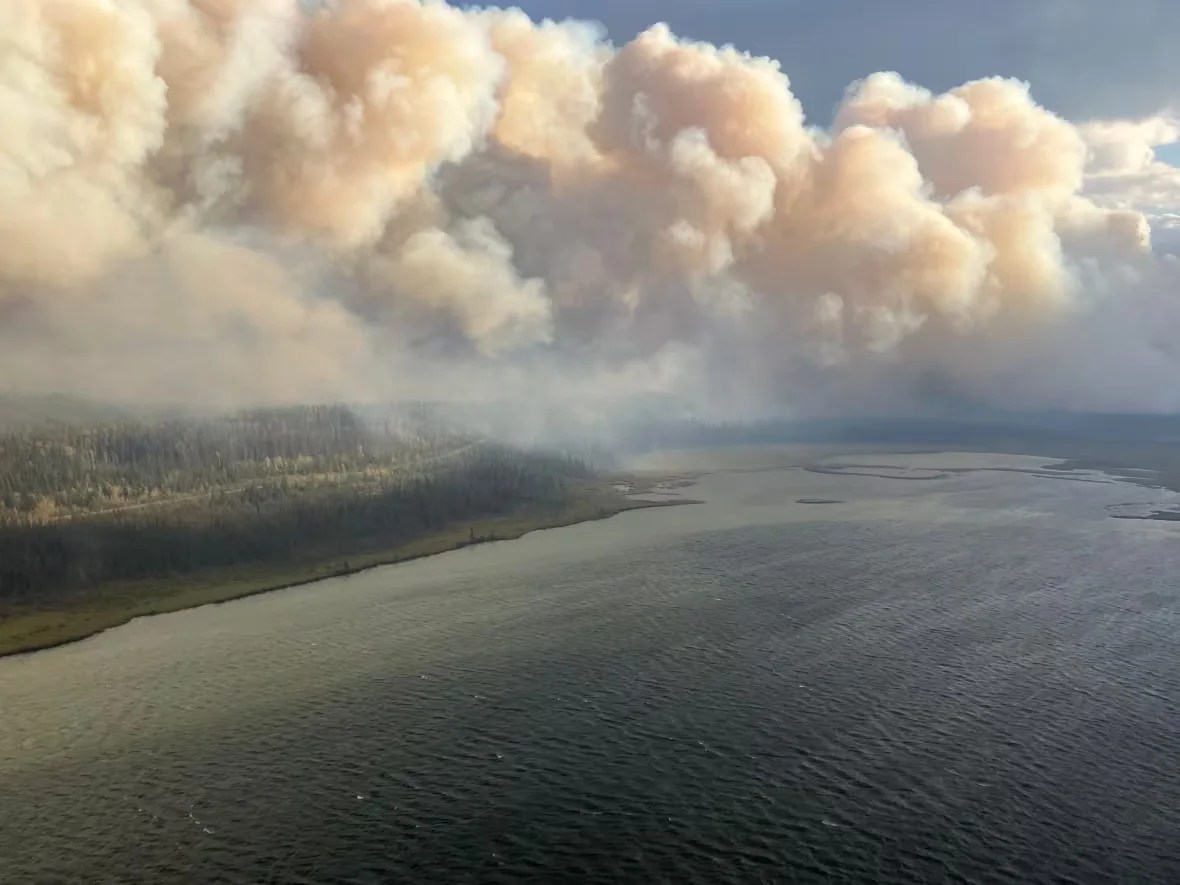
There is no detour available on Highway 37, with the stretch closed between Beaver Dam Rest Area and Border Rest Area for 70.7 kilometres near the B.C.-Yukon border. (B.C. Wildfire Service/Twitter)
Kaitlyn Bailey, a fire information officer with the B.C. Wildfire Service (BCWS), said winds were gusting up to 60 km/h on Friday, pushing the Little Blue River wildfire across the road.
"While that fire had previously crossed Hwy. 37 in certain spots, there was much more widespread cross [Friday]," she told CBC News.
Winds died down slightly on Saturday, but Bailey said the fire was still behaving aggressively.
Another fire forced the closure of Highway 77 north of Fort Nelson, near the N.W.T. border, in northeast B.C.
Evacuation alerts are in place along a stretch of Highway 77, with the Northern Rockies Regional Municipality urging those camping in the area to leave immediately.
DON'T MISS: Vancouver's architecture, by design, was never meant to handle extreme heat
Erika Berg from the BCWS said "extreme" winds were affecting the far north.
"With several days of hot and dry conditions, we were forecasting that fuels would be really [receptive] to high spread when those winds come in," she told CBC News Network. "That is what we did see on some of our large incidents in those regions."
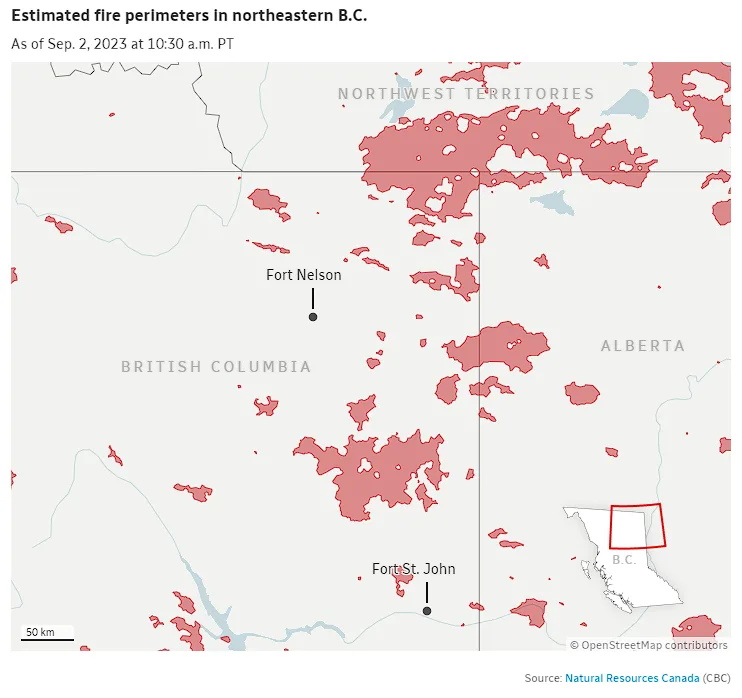
While the south is trending towards more fall-like conditions, Berg said the weather could be drier than anticipated this weekend, which may cause flare-ups.
"We are transitioning into fall out of the peak of summer," she said. "But this wildfire season is not over yet."
WATCH: What do those air quality numbers actually mean?
Evacuation orders downgraded in Interior
Evacuation orders for 26 properties in the Kamloops and Shuswap Lake areas, affected by two separate wildfires, have been lifted and downgraded to alert status.
The Thompson-Nicola Regional District issued a statement Saturday saying the changes involve three properties affected by the ongoing Rossmoore Lake wildfire south of Kamloops, and 23 properties affected by the Bush Creek East blaze.
Residents of properties placed on evacuation alert can return to their homes, but should still be prepared to leave on short notice, the statement reads.
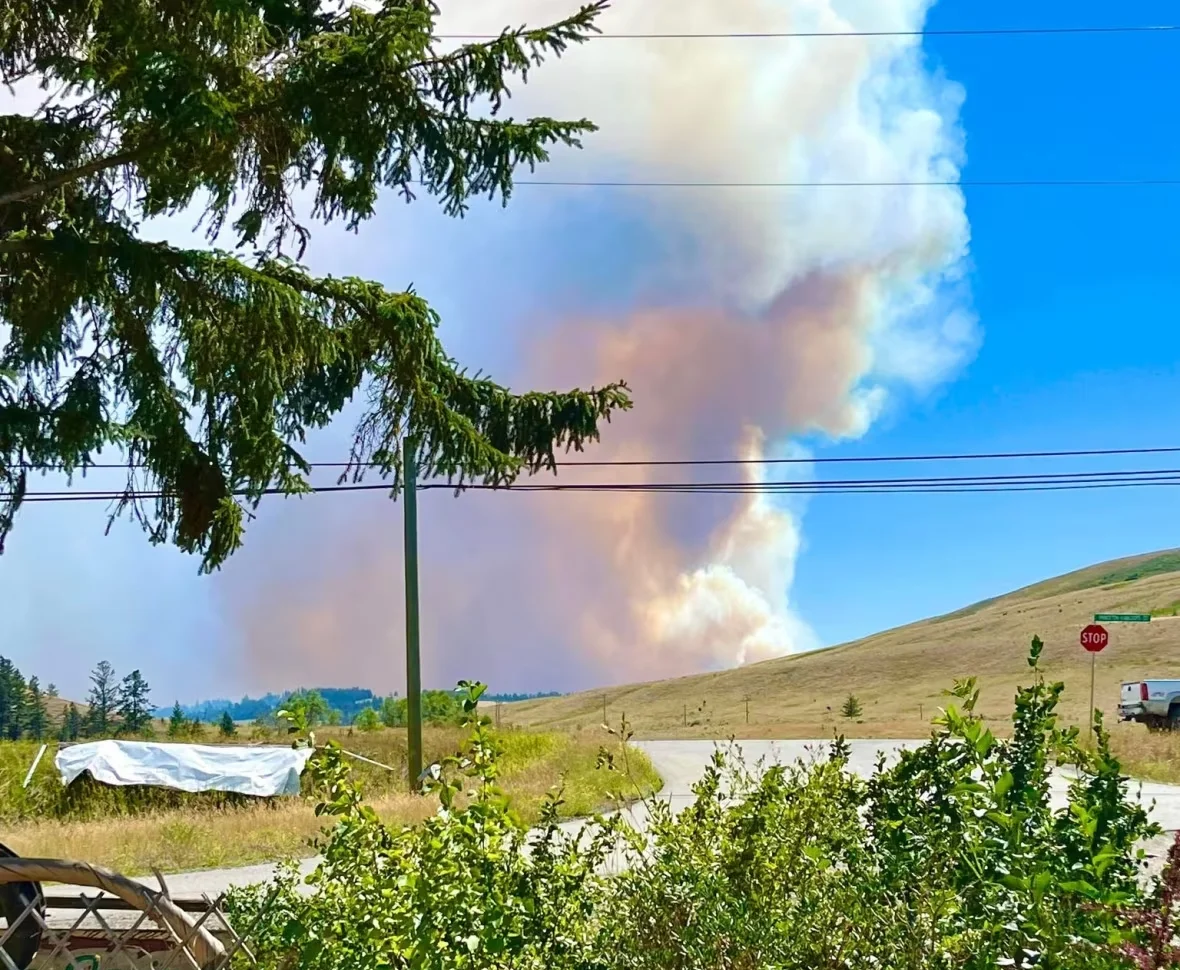
The Rossmoore Lake wildfire south of Kamloops was suspected to have been caused by lightning. As of Saturday, there are no more properties on evacuation order due to the fire. (Submitted by Katie Corneille)
The regional district says the downgraded evacuation orders allowed officials to expand the alert areas in both the Rossmoore Lake and Bush Creek East wildfire areas.
It also advises residents of 11 properties in the Little Shuswap Lake area to access their homes by boat due to fire damage to the local road.
The Columbia-Shuswap Regional District also downgraded evacuation orders for 14 properties in Sorrento, B.C., on Saturday.
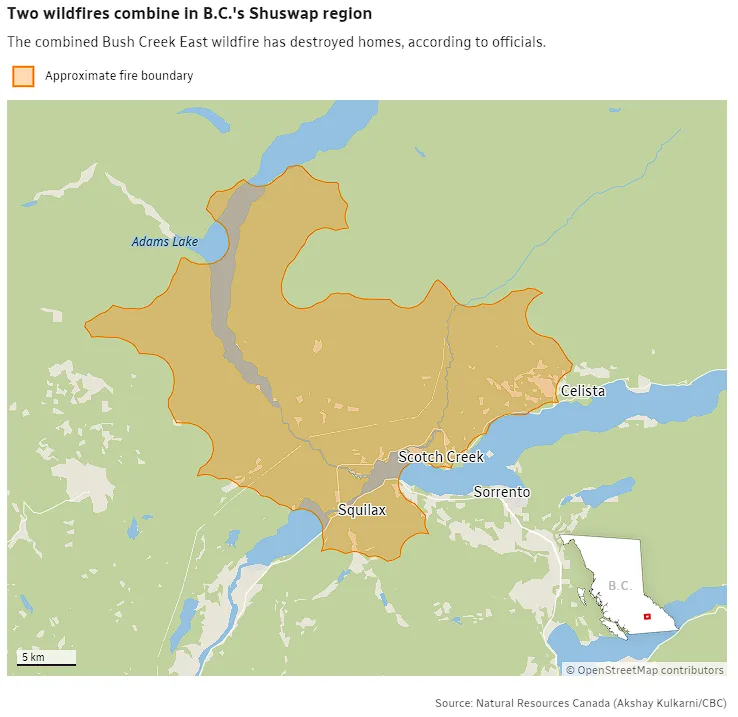
Regional district officials say about 200 homes in the Shuswap lake area have been destroyed or significantly damaged in the Bush Creek East wildfire.
Some evacuation orders were also downgraded to alerts in West Kelowna on Saturday, with the Regional District of Central Okanagan saying many residents of the McNaughton Road area could return home.
This article was originally published by CBC News on September 2, 2023. It contains files from Randi-Marie Adams, CBC News Network and The Canadian Press.









